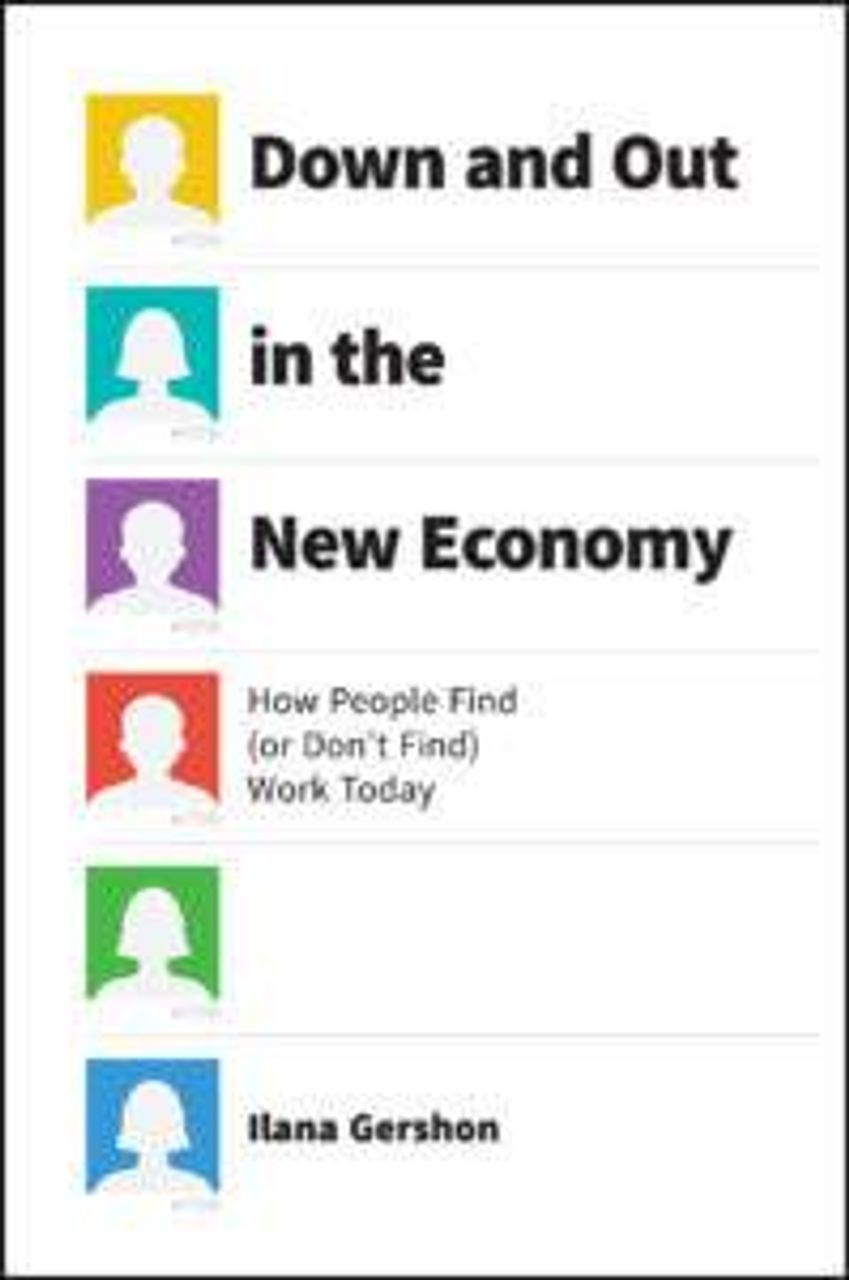Why Job Hunters Don't Find Work
An interview with the author of 'Down and Out in the New Economy'
(Editor’s Note: This story is part of a partnership between Next Avenue and Chasing the Dream, a public media initiative on poverty and opportunity.)

An anthropology professor might not be the first person you’d think of to research the ways job hunters look for work — and often don’t find it. But Indiana University’s Ilana Gershon just did it and wrote a fascinating and quite surprising new book on the subject: Down and Out in the New Economy: How People Find (or Don’t Find) Work Today.

Gershon’s conclusions are important to understand for anyone looking for a job, and especially for people in their 50s and 60s who haven’t been job hunters for decades but suddenly are. (I recently interviewed Gershon about her insights; highlights are below.)
Gershon spent 2013 and 2014 talking to 165 San Francisco Bay Area job seekers (white collar and blue), career counselors, hiring managers, recruiters, HR managers, people recently hired and people who recently quit. She also attended 54 workshops that taught job seekers — many of them 50+ — how to use LinkedIn and other social media; how to write resumés, network and interview and how to develop their “personal brands” (that means marketing yourself and your career as a brand). Gershon also watched 380 filmed “success stories” of people who’d snagged jobs.
Refuting Conventional Wisdom of the Job Search Process
Time and again, Gershon’s provocative findings refute conventional wisdom about looking for work. Five of her conclusions:
- Developing your personal brand isn’t very useful for getting hired
- Cultivating your “weak ties” on LinkedIn — people you don’t know very well and who tend to know types of people you don’t — isn’t very useful for getting hired
- The ties that most help white-collar job seekers are workplace ties — people who can speak to what you are like as a worker
- Employers rarely know, or find out, how well job seekers would do in the jobs they’re applying for
- The “black hole” of applying for work and not hearing back is often a subtle form of age discrimination
Gershon, an expert in social media, likely came to these results because she’s not part of the HR-career coach industrial complex. Her objectivity allowed the professor to challenge the tropes. Here’s an abbreviated version of our conversation:
Next Avenue: What surprised you about the job-seeking process?

Ilana Gershon: I was really struck by how little the job interviews, and the sorting process in U.S. corporations, involved watching someone do the work that they would be doing if they got hired.
They were selecting job applicants based on interviews, LinkedIn profiles and resumés. But for the most part, no one will do anything in a job that resembles the work of putting together a resumé or be as charming as in a job interview.
The skill in writing a resumé is about creating short bullet points that convey a complex work history in a standardized form. The work of creating a good resumé is not the skill that most people have to do in their actual jobs.
What’s wrong with the way people look for work today?
I’ll tell you the opposite: One of the things that bothered me when I was doing my research is that people in their 50s and 60s come to job-seeking workshops and are told that ‘everything you know about job hunting is out the window’ and that hiring takes place in a ‘completely new way.’ But these applicants actually know a lot about how hiring works, because they’ve been involved in hiring.
And they’re told: ‘Everything’s about personal branding.’ But they’ve been in hiring situations where personal branding never came up.
So what should job seekers do?
I think job seekers should trust themselves more and when they get a piece of advice, they should think: ‘Does this advice match with what I already know?’
One older job seeker I spoke with told me something that showed he’s checking the advice he heard against his experience. He said: ‘Everyone tells me to find someone on the inside of an employer where you want to work and give that person your resumé. But in the jobs I’ve had, people I worked with would bring me resumés and they were crappy. I would toss them in the bin. If someone couldn’t vouch for the person, I wasn’t going to pay attention to the resumé.
You aren’t a fan of the common advice for job hunters to ‘develop your personal brand.’ Why not?
The major reason I’m not wild about this is that no one I talked to on the hiring side ever seemed to care about personal branding. Being good at personal branding isn’t an indication that the person will be good at the job, unless they’re trying to get a job as a marketer.
A lot of job hunters say their applications go into a black hole and they never hear back from employers. What did you find?
I heard about black holes all the time. It’s kind of heartbreaking and it can inadvertently create age discrimination by not seeing older job candidates.
How can older job seekers get around black holes — when their applications are discarded by the employer’s Applicant Tracking System (ATS)?
Having someone who worked with you in the past vouch for you is a helpful way to get around the ATS problem. People in their 50s and 60s have worked with many people; if they were told to network with those ties, that would really be time worth investing in.
In my research, only 17 percent of people getting jobs did it through weak ties; 61 percent did it through workplace ties.
Some job hunters think the postings they see are essentially fake because the jobs are already filled by the time they see them. Are they right?
Sometimes they’re not real ads. But what I found were a lot of dysfunctional hiring practices. Employers would hire someone and still leave the job ad open. There are more problems with HR people not taking the ads down; they’re overworked or the deal hasn’t been completely clinched so they don’t feel like taking down the ad yet.
And what about people who want to change fields in their 50s or 60s? How can they convince employers their skills are transferable?
I came across a lot people who are really struggling with this. It easy to get screened out by ATS systems if you want to change fields, especially if you’re older. Employers aren’t imagining you as a flexible worker, ready to learn new skills.
You spent a lot of time at job-hunting workshops for people over 45. What did you learn from them?
The advice was really good about telling people how to do competent resumés or LinkedIn profiles. But the problem was the workshops were open and free to everyone, so they had to have a common denominator of advice for every industry. A lot of issues for people looking for work are industry specific. Part of the problem with job-search advice now is that it’s too standardized.
What would you tell job seekers about going on informational interviews to learn more about employers?
You can get some detailed insights from informational interviews. I recommend them as a way of doing research the way an anthropologist would, by trying to understand how the employer hires and the culture of the organization.
What should job interviewers be doing to better assess candidates?
Here’s an example: When one woman I met who works at a chocolate shop interviews people looking for jobs there, she asks applicants to describe their favorite meal. That’s because a lot of what the job requires is describing the food-selling in a compelling way. She was asking them to do the thing they would have to do in their job.
How could businesses reduce their biases against older job applicants?
They could start talking about how they think wisdom and being a repository of knowledge is important.
This story is part of our partnership with Chasing the Dream: Poverty and Opportunity in America, a public media initiative. Major funding is provided by The JPB Foundation. Additional funding is provided by the Ford Foundation.


